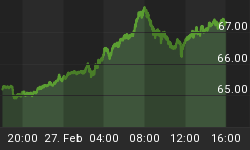For many years, the cloud quadrille of Amazon’s AWS, Microsoft’s Azure, Google Cloud and IBM SmartCloud has been engaging in rounds of fierce price wars in a bid to dominate both market share and mindshare. The cloud race has also frequently featured a healthy dose of ivory tower jousting and demagoguery.
But right now, the war is being fought on an entirely new front: to prevent a powerful rival from embarrassing its cloud competitors.
Specifically, nine public cloud vendors have set aside their rivalries to gang up against Amazon, which is looking like a shoo-in to win a massive $10 billion cloud contract by the Pentagon.
AWS, the largest and most feature-rich public cloud, is slated to be awarded a contract known as the Joint Enterprise Defense Infrastructure (JEDI).
Nine other vendors including Microsoft, IBM, Oracle, VMware, HP, Dell, General Dynamic’s CSRA unit, SAP, Red Hat are not happy with the single-source arrangement and are banding together to persuade the Pentagon to divvy up the spoils amongst several vendors.
It’s laughable that Microsoft and Oracle, two sworn arch enemies, are at the frontline in the battlefield, kicking and screaming the loudest.
Firing Blanks
The JEDI contract, due to be awarded in September, has been highly contentious for months.
The anti-Amazon crowd has joined ranks to woo the press and lobby legislators to support their cause. They have even gone as far as taking out ads in The New York Times, one of Trump’s favorite publications, complete with pictures of a grinning Jeff Bezos, Amazon’s CEO.
But so far they seem to be firing blanks. Related: Global Debt Is Weighing On Gold Prices
Although the House Budget Committee has yielded to their charm offensive and passed legislation to halt funding for JEDI if it awards the contract to a single vendor, the senate is having none of it and has stuck with the old version of the spending bill.
Maybe Amazon should now throw a counterpunch by publishing ads of a weeping Larry Ellison in the Washington Post (owned by Bezos).
Bragging Rights
From a casual glance, the stonewalling sounds like nothing more than a bad case of corporate sour grapes. After all, a contract of that magnitude seems beyond the pay grade of some companies on that list and they could simply end up being cannon fodder for the likes of Microsoft and Oracle.
Sure, $10 billion is a lot of money. But JEDI will likely be a long-term 7- to 10-year contract, meaning the amount will be amortized over the entire period.
For a company like Microsoft with cloud revenues approaching $20 billion and total revenues approaching $100 billion, an extra $2 billion or so every year will hardly budge the top line.
This is not just about money. To a large extent, it’s about winning the bragging rights in the hotly contested cloud wars.
AWS is already several times bigger than second-placed Azure, while the other contenders would need the Hubble telescope just to see it. Winning such a huge and important contract would not only allow AWS to gloat in front of its rivals for years, but it would improve it’s already admirable standing in the eyes of other clients, especially the heavily loaded ones.
Microsoft and Oracle et al are simply trying to prevent that from happening.
By Alex Kimani for Safehaven.com
More Top Reads From Safehaven.com:
















